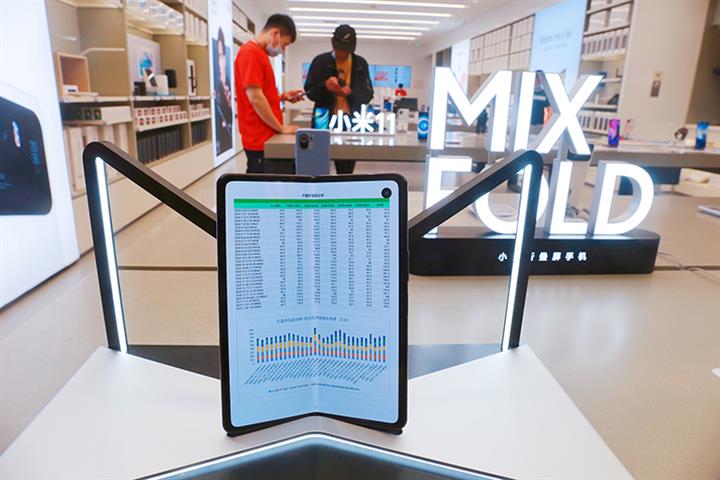 Xiaomi to Double R&D Spending Plans to USD15.7 Billion Over Next Five Years
Xiaomi to Double R&D Spending Plans to USD15.7 Billion Over Next Five Years(Yicai Global) Dec. 29 -- Xiaomi intends to double spending on research and development over the coming five years, compared with a plan China’s biggest handset maker set out almost two years ago, with the aim of becoming the world’s No. 1 smartphone seller.
Xiaomi intends to invest CNY100 billion (USD15.7 billion) on R&D through 2026 to compete with Apple in the high-end mobile phone market and take the top handset sales spot in three years, founder and Chief Executive Lei Jun told reporters yesterday.
In April last year, the Beijing-based tech giant had released a five-year plan to spend CNY50 billion on R&D.
Xiaomi had a 13.5 percent share of the global smartphone market in the third quarter, down from 16.7 percent in the previous three months, as Apple retook the No. 2 slot thanks to the launch of the iPhone 13, according to market analyst firm Canalys. South Korea’s Samsung retained the top slot, with 21 percent.
“We decided to take a clear stand to compete with Apple in terms of products and user experience,” Lei said via Weibo on Dec. 21. “We’ll learn from Apple and surpass it step by step.”
New Product
Xiaomi also launched its newest flagship phones at yesterday’s press conference. The Xiaomi 12 Series will come in two different sizes to directly compete with Apple’s iPhone 12 and iPhone 13 Pro Max.
Its screen is 8 percent larger than that of the iPhone 13 despite being 1.6 millimeters narrower, and has a refresh rate of 12 hertz, Lei said, adding that the Mi 12 has broken the iPhone 13’s monopoly in the small-size, high-end flagship phone market.
The Mi 12 series is powered by the Snapdragon 8 Gen 1, which jumps to a four-nanometer process from the 5nm one on which last year’s Snapdragon 888 was built, and it is equipped with a 120-watt fast charge mode. The Mi 12 is priced at between CNY3,699 and CNY4,399 (USD580 and USD690), while the Mi 12 Pro sells from CNY4,699 to CNY5,399 (USD735 to USD845).
Xiaomi also released its new operating system, MIUI13, and the Xiaomi Watch S1. MIUI monthly active users exceeded 500 million as of Nov. 25.
User Criticism
“This year may have been the year that I received the most criticism from users,” Lei said with regard to the issues related to the quality of last year’s Mi 11 and Mi 11 Ultra, which was questioned by netizens, putting the company under much pressure.
“But now more than ever, I believe in Xiaomi’s principle that technology is the base,” he said.
Shares of Xiaomi [HKG: 1810] fell 1.2 percent today to close at HKD18.56 (USD2.38) each, after earlier dropping by as much as 2.2 percent. The benchmark Hang Seng Index ended 0.8 percent lower. Xiaomi’s stock has fallen 44 percent this year.
Editor: Futura Costaglione